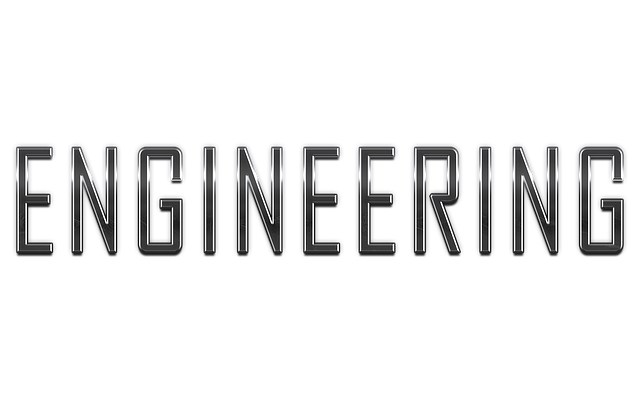Before diving into the world of purchasing vehicles with salvage titles, understanding the intricacies of insurance salvage regulations is paramount. These regulations govern the process by which insurance companies declare vehicles as salvage, impacting their future resale value. A comprehensive vehicle history report is your compass; it reveals past accidents, title branding, and total loss instances, empowering informed decisions.
This article guides you through the crucial steps: from grasping Insurance Salvage Regulations and their effects to navigating Damaged Car Title Transfer, Repair and Inspection Certification, and State Salvage Title Laws. By the end, you’ll be equipped to assess repair feasibility and achieve a rebuilt title certification.
- Understanding Insurance Salvage Regulations and Their Impact
- – Definition of salvage titles and their significance in the automotive industry.
- – Overview of insurance companies' role in declaring vehicles as salvage.
- – Common reasons for a vehicle to receive a salvage title.
Understanding Insurance Salvage Regulations and Their Impact

Understanding Insurance Salvage Regulations and Their Impact on Vehicle Ownership Transfer
When a vehicle sustains significant damage, insurance companies often mark it as salvage, resulting in a damaged car title. However, with proper repairs and adherence to Insurance Salvage Regulations, this doesn’t mean the vehicle is beyond redemption. The process involves a meticulous repair and inspection certification to ensure the vehicle meets safety standards and is fit for road usage. This not only protects consumers but also ensures that only legitimate, safely reparable vehicles re-enter the market.
State salvage title laws play a crucial role in this regulatory framework. These laws dictate the requirements for transferring ownership of a vehicle with a damaged title, including specific documentation, inspections, and certifications needed to obtain a rebuilt title. By following these guidelines, buyers can navigate the process confidently, ensuring they’re making an informed decision about purchasing a vehicle with a salvage history while adhering to legal requirements.
– Definition of salvage titles and their significance in the automotive industry.

In the automotive industry, a salvage title signifies a vehicle that has sustained significant damage and been declared a total loss by its previous owner or insurance company. This damaged car title transfer results from events like severe accidents, natural disasters, or theft, leading to extensive repairs or a determination of structural integrity issues. Despite its history, these vehicles can be purchased at reduced prices, making them an attractive option for cost-conscious buyers. However, the significance of salvage titles goes beyond savings; they are governed by strict Insurance Salvage Regulations and State Salvage Title Laws that ensure transparency and accountability in the ownership transfer process.
Understanding these regulations is crucial for anyone considering purchasing a vehicle with a salvage title. The process involves careful documentation, thorough repair and inspection certification to meet DMV requirements, and compliance with local laws. This ensures not only the legitimacy of the transaction but also provides buyers with peace of mind, enabling them to navigate the necessary steps, from obtaining a repair estimate to passing a salvage vehicle inspection, before achieving a rebuilt title certification and completing the vehicle ownership transfer.
– Overview of insurance companies' role in declaring vehicles as salvage.

Insurance companies play a pivotal role in declaring vehicles as salvage, following strict Insurance Salvage Regulations. When a vehicle sustains significant damage that exceeds its pre-accident value, making it unsafe for road use, an insurer may classify it as a total loss. This decision is based on assessments by appraisers who evaluate the cost of repairs versus the vehicle’s market value post-damage. If the insurance company determines that repair costs would be disproportionate to the car’s worth, they flag it as salvage, initiating a series of processes leading up to the damaged car title transfer.
The declaration of a vehicle as salvage is not just an administrative step but also triggers compliance with State Salvage Title Laws. These laws govern how the ownership transfer and rebranding process must be conducted. Repairs and inspections play a critical role here; only after a vehicle passes a rigorous repair and inspection certification can it be considered for a rebuilt title. This certification ensures that any necessary repairs have been made to safety standards, facilitating the seamless transition from a damaged car title to a clean one, thus allowing the vehicle to return to the road legally.
– Common reasons for a vehicle to receive a salvage title.

Many vehicles receive a salvage title due to accidents or damage that significantly impacts their structural integrity and safety features. In such cases, even after repairs, the vehicle may not meet the required safety standards set by insurance companies and government regulations. Insurance Salvage Regulations often dictate that if a vehicle has sustained water damage, fire, or certain types of severe damage, it must be labeled as salvage to prevent its resale as if it were in pristine condition. This helps protect consumers from buying vehicles with hidden issues.
The process of transferring ownership for a damaged car involves complex procedures, including strict inspections and certifications. Repair and Inspection Certification is crucial to ensuring that the vehicle has been safely repaired and meets all necessary safety standards before being sold again. State Salvage Title Laws vary, but they generally require disclosing the salvage history to potential buyers and completing specific documentation to legally transfer the title, facilitating a smooth Vehicle Ownership Transfer.
Before purchasing a vehicle with a salvage title, obtaining a comprehensive vehicle history report is essential. This report offers insights into the car’s past, including accidents, title branding, and total loss designations. Understanding these details allows buyers to navigate the rebranding process, comply with DMV salvage title requirements, and pass inspection. By assessing potential repair costs and feasibility of achieving a rebuilt title certification, informed decisions can be made regarding vehicle ownership transfer and repair and inspection certification, in light of varying state salvage title laws.



